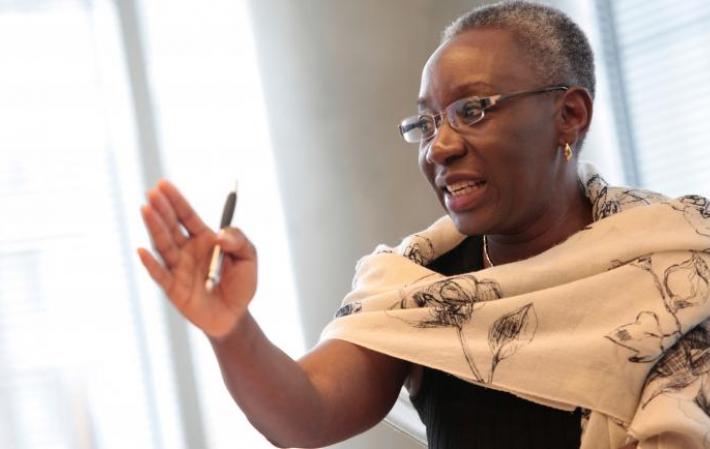
Sandra Pepera, Senior Associate and Director for NDI's Gender, Women and Democracy team.
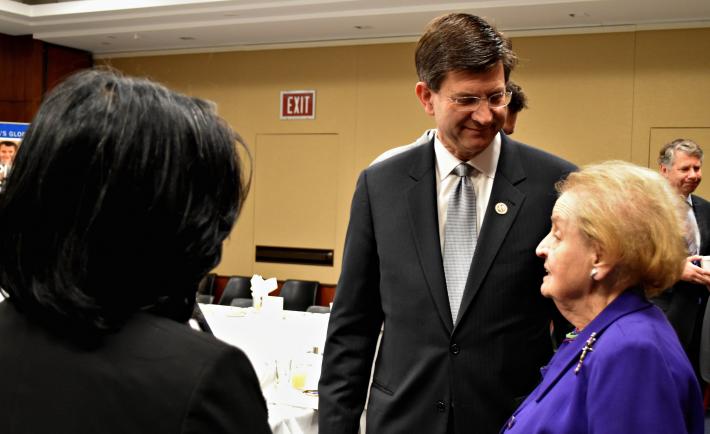
NDI Chairman Madeleine Albright discusses democracy assistance with Representative Brad Schneider (IL-10) and freshman Representative Pramila Jayapal (WA-07)
I’ve seen my share of campaign slogans, and—to my knowledge—democracy assistance has yet to make it to the political mailers. In fact, foreign policy is rarely a key campaign issue for Congressional candidates, who tend to talk about fixing problems at home rather than facing challenges abroad. Yet, when they come to Washington, Members of Congress become essential decision-makers in the foreign policy process that determines America’s place in the world.
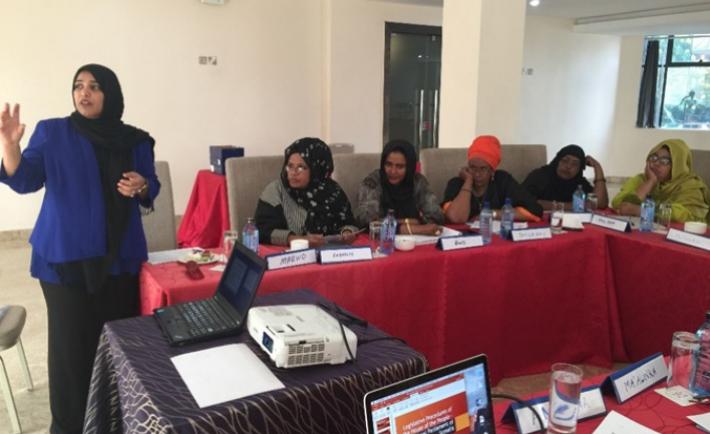
Hodan speaking on the role of women in peace and development processes in Somalia at the Peace, Security and Development in the Horn of Africa Conference on December 8, 2016 in Nairobi, Kenya
Somalia has been at war with itself since 1991, and my family fled the country at the peak of the civil war that year. Over the course of the following decade, I lived and studied in India. The civil war has left the country with many scars: political instability, insecurity, a dysfunctional government, no functioning public and private institutions, economic destitution, clan disputes and violence, the formation of terrorist groups, and piracy. So after my studies, I decided to return to Somalia to contribute to the rebuilding of the nation. But arriving in Mogadishu in 2003, nothing prepared me for the shock at the level of destruction and the suffering of my people, especially women and children.
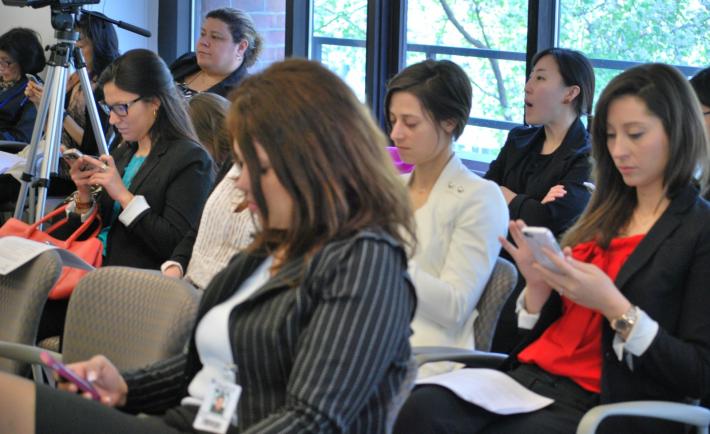
Young women are the future of politics, but we have to protect them from violence, including online.
Communication technologies are having a significant impact on the way we practice democracy around the world. Online platforms are an exciting and expanding space for citizens to gather information and voice their opinions. They offer new opportunities for politicians and their constituents to connect, and for young women and men and other new entrants to politics to cost-effectively find a voice and build their political networks. However, these platforms can also be a forum for misinformation, hate speech, abuse and harassment.
NDI staff Lauren Kitz and Jesper Frant lead YIAGA through a visioning and reflection workshop on its #NotTooYoungToRun campaign.
Margaret Mead is quoted as saying, “never doubt that a small group of thoughtful, committed citizens can change the world; indeed, it's the only thing that ever has.” In late February, I traveled to Abuja, Nigeria to meet with one such group of thoughtful, committed citizens.
The Youth Initiative for Advocacy Growth and Advancement (YIAGA) is one of Nigeria's preeminent youth organizations. YIAGA, along with the Youngstars Development Initiative (YDI), has conducted a very successful advocacy effort to lower the eligibility age to run for elected office in Nigeria. From humble beginnings, the #NotTooYoungToRun campaign has grown into a national movement.
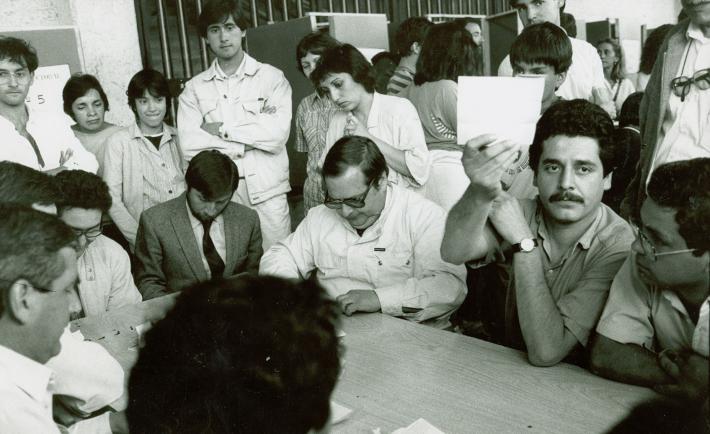
Election workers count votes during Chile’s 1988 plebiscite, which ended Pinochet’s dictatorship. Source: Flickr
When I started out as a junior State Department diplomat at the close of the Carter Administration in the dark days of the Cold War, the state of democracy in Latin America was abysmal. Military dictatorship was the norm throughout the region. During my early State Department years I worked to support, sustain, and contribute to the so-called third wave of democracy in the Americas that helped make the Latin America region, as the Economist recently said, “the most democratic region of the developing world,” behind only North America and Western Europe.
In 2013, while I was working in partnership with NDI Guatemala, I became interested in encouraging more women to get involved in politics, so I applied for the Andi Parhamovich Fellowship. I proposed a project focused on increasing women's participation as decision-makers in Guatemala - a huge challenge for me considering my background was in the sciences and I was new to politics.
Through my APF project I worked on a training program to prepare female candidates, who defied gender stereotypes, for the legislative elections in 2015, but we never expected a year like that.
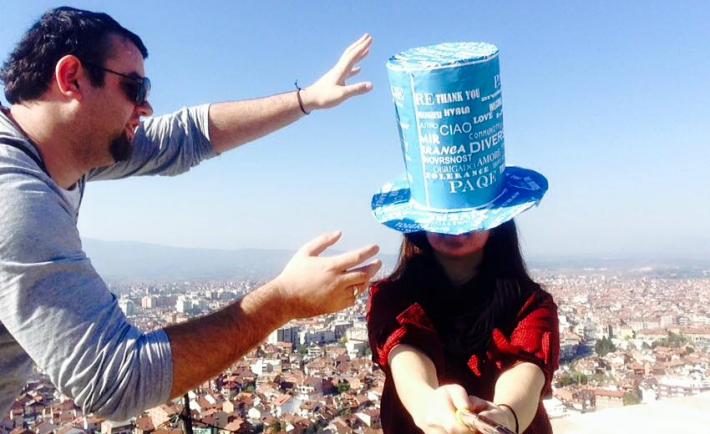
The emerging leaders group 'Diverse Your-Selfie' used this symbol of a hat to promote diversity by taking selfies and posting them to social media networks.
NDI Kosovo recently concluded a more than two-year long program on Conflict Mitigation, aiming -- through its own activities and with the support of its partners -- to cultivate relationships across the country’s divisions, thus easing ethnic tensions in Kosovo. Through the program, more than 600 Kosovars engaged in diverse dynamics across ethnic lines, overcoming their possible post-war fears, prejudices and mistrust, thus establishing rewarding collaboration.
_0_1_0_0_0.jpg)
Photo credit: Ronile on Pixabay
International electoral espionage is bigger than one election, one person and one country. It is also bigger than elections themselves. It is a direct threat to our democracy and to other countries around the globe.
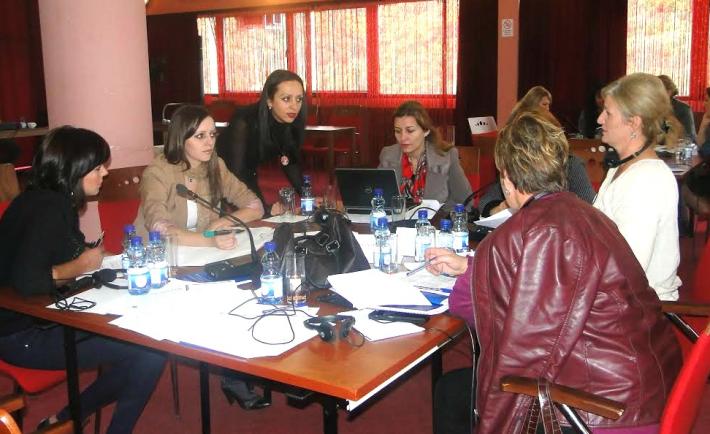
A workshop on Gender Responsive Budgeting, held in October 2012, where women councilors developed an advocacy plan and timeline for their municipality’s priority issue.
Meaningful democracy means the equal participation of women and men in political and public life.
In 1999, just after the war, I found myself back in my hometown, having spent months as a refugee in Macedonia. As Kosovo recovered, the UN and many international organizations were present to help Kosovars build institutions and capacities and to reconcile communities. I started to run the youth center in my hometown, and I had the opportunity to talk one-on-one with young people while I worked there. We were a new generation and we had gone through difficult and different experiences during the conflict, so getting together in this way was a real challenge at first.
Prior to my work with NDI, the term “democracy” in Nepal seemed to imply a group of leaders fighting for power, without regard to the norms and values of democracy. Democracy was not for the people, of the people and by the people, but for the leaders, of the leaders and by the leaders. This perception commonly held by political parties in my country made me think - did democracy really exist? Will future generations adopt and carry the same values that we practice in our daily lives or will they bring about changes?